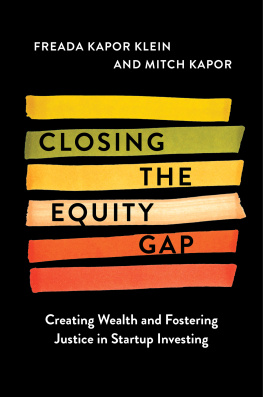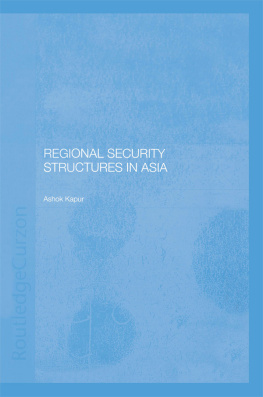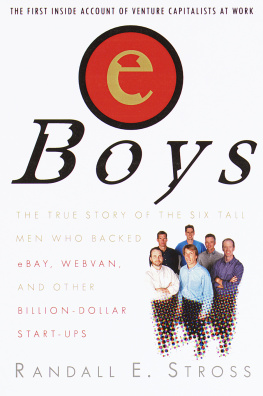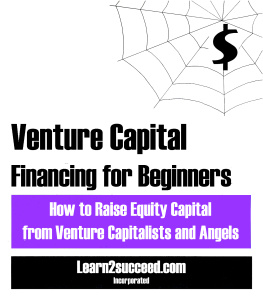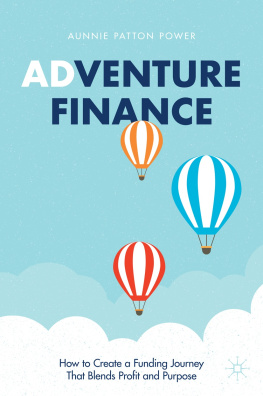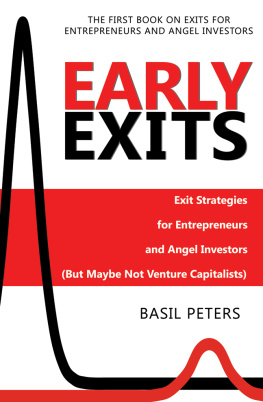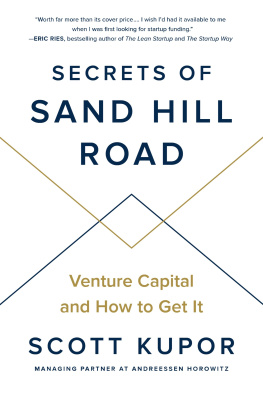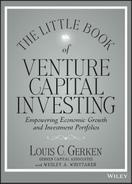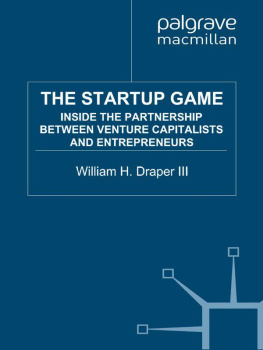Contents
Guide
To the rising generation of gap-closing entrepreneurs, fund managers, and scholars, who are creating inspiring solutions for the millions who face unfair obstacles, injustice, and bias.
Our Urgent Proposal
On any given day in the United States, a mother who has been laid off from a factory job will start learning how to build websites, her first step toward a higher salary, stability, and security. A retired teacher with chronic, untended medical needs will find an affordable health plan and start getting care. A deeply indebted family facing water shutoffs will get a call from their utility offering to help with payments. Boxes of healthy, organic cereal, peanut butter, breads, and soup will replace dollar store junk food in a veterans kitchen.
Behind these promises of a better America is a new community of mission-driven entrepreneurs, visionaries who themselves survived lifes worst challenges only to grow up determined to solve them. They have no time for complacency. Theyre motivated, passionate, and making a difference.
These CEOs and founders, who collectively run companies worth billions of dollars and are sought out by mainstream Silicon Valley investors, include the children of immigrants, descendants of enslaved people, men and women who grew up disenfranchised, unentitled. One grew up in foster homes; others saw loved ones addicted or incarcerated. In the young white maledominated landscape of tech startups, theyre considered outsiders. Their businesses are considered misfits. Theyd all heard hundreds of No thanks from investors early on; rather than seeing their potential, those investors looked for a pedigreed college diploma, a well-connected set of industry contacts, and a proven track record.
Their companies are different, too.
No one is building robots that make bankers lives easier, or hawking Internet of Thingsconnected kitchen appliances. They have different goals: to avoid utility shutoffs and sky-high interest fees, to bring clean energy to low-income communities, and to connect untapped talent to tech opportunities. Every single one of them has created a business that closes gaps between haves and have-nots. We are proud to say that all the companies were launched with significant initial investments from Kapor Capital.
During a summer week on Marthas Vineyard in 2021, we had gathered with a dozen of these entrepreneurs for intensive workshops, meetings, and networking. Although some were just getting started, as a group these entrepreneurs had raised many hundreds of millions of dollars, employed thousands, and were well on their way to improving the lives of people around the U.S. and beyond. Together they were buoyed by each others work, and they challenged, questioned, and encouraged each other. They stayed up late whiteboarding a plan to team up and tour around the U.S., collectively pitching their various solution-oriented products and services to cities. They shared their goals of improving generations of lives in underserved communities. They shared their outrage over injustice and inaction, and they marveled at how quickly they were making progress: just one generation ago, there werent any Black and Latinx tech startup founders and investors. Their numbers were still paltry, but this week these men and women filled a house.
When former president Barack Obama stopped by for a visit, he fit right in. Their visions aligned, he said, to harness technology to confront the biggest challenges that America faces.
Challenging Assumptions
When we made a commitment to invest $10 million per year of our own money for a decade in an investment fund, we set out on a singular quest to find a better way to invest dollars in people. This is the backbone of our work in venture capital. Now were finding answers that can have repercussions reaching far beyond the finance industry. Venture capitalbacked companies drive the U.S. economy, stimulating the creation of companies worth trillions of dollars. When that big money benefits the already advantaged and fails to benefit society, especially those on the lower rungs of the ladder, its exacerbating the growing divides that separate us. Were seeing it happen right now. Investors and corporations are making record profits, as the stock market, even during rocky times, demonstrates a long-term rise. Were gravely concerned that the not-so-hidden costs of that success threaten the promise of America.
Consider this: the Federal Reserve Board in 2021 found that a typical white family owned about $184,000 in family wealth, a typical Black family owned $23,000, and a typical Latinx family owned $38,000. The average wealth gap between Black and white families, $12 per $100 of white wealth, pretty much hasnt changed in decades; the gap for Latinx families, $21 per $100 of white wealth, has only slightly improved. Oh, and women? There has been a lot of talk about how womens salaries are finally closing in on their male counterparts, but there are still gaping gender disparities in basic wealth, bank savings, property, investments. Also, even within any given racial group, women tend to make less than men. And white women still make more than their Black, Latinx, and Native women counterparts.
Generations ago, women were largely confined to a narrow choice of work: secretary, teacher, or nurse. Thats changed, somewhat. Todays young women have a broader range of work opportunities than baby boomers had before them. Unfortunately this is not the case when race is taken into account. Opportunities for people of color in the U.S. havent really improved over the decades, according to a 2020 analysis by the Washington Center for Equitable Growth. The types of jobs Black and Latinx people in the U.S. tend to work in remain low-paying and devalued, which further entrenches inequality.
Nowhere are these imbalances more obvious than in the technology industry, where some of the worlds greatest fortunes have gone disproportionately to white male founders. This remains the case even as, collectively, global corporations have been spending $68 billion per year on diversity and inclusion commitments. We can say, objectively, that money has been largely wasted. Fewer than 5 percent of big tech employees are Black or Latinx. Women are also lagging. Its been that way for decades.
When we launched Kapor Capital more than a decade ago, we committed to doing things differently. We are an impact investment firm seeking to bring about positive, measurable change with our funds, along with financial returns. Impact investment funds aim to do good, often founded with a specific mission to address environmental or social issues. In recent years impact investing firms in all asset classesventure capital, private equity, real estate, public equities, and morehave soared in popularity. More and more people from different generations and different walks of life want to see their money invested in a manner that aligns with their values. Universities and foundations hear from their communities about the importance of investing their endowments consistently with their missions. Private workers are keenly interested in what their 401(k) retirement accounts are investing in. Nevertheless, all of this interest in impact investing has resulted in a lot of rebranding without substantial changes in how that money is invested, who receives it, and how success is measured. Many of the large private equity (PE) and venture capital (VC) firms that have opened divisions focused on impact investing still rely on the same investment committees to approve their transactions. Impact has become a feel-good, catch-all category with little rigor in definition or metrics.
Thats why Kapor Capitals funds stand out in the arena. When we started our impact investing effort, we established clear criteria: the core business had to be a tech business that closed gaps of access, opportunity, or outcome for low-income communities and/or communities of color. We had already founded and/or invested in multiple tech companies, seeing firsthand how the venture capital process worked to launch successful businessesand where it failed. And we had already been highly successful investing in tech startups for years, noticing along the way how many of our competitors missed investment opportunities that served low-income consumers or were founded by people of color.

